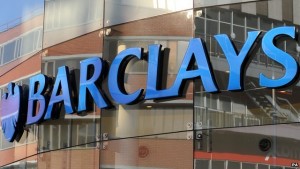Barclays to Withdraw from African Investments
 Barclays PLC has announced its plan to begin gradually withdrawing from its investing activities in sub-Saharan Africa. The move is part of a broader plan outlined by new CEO Jes Staley to limit the bank’s exposure in emerging markets.
Barclays PLC has announced its plan to begin gradually withdrawing from its investing activities in sub-Saharan Africa. The move is part of a broader plan outlined by new CEO Jes Staley to limit the bank’s exposure in emerging markets.
With some 1,267 branches, Barclays is currently one of the largest banking providers in Africa. The African business, mostly held under Barclays Africa Group LTD, has been built up over several decades and under the supervision of many Barclays Chief Executives. The move to withdraw from this market, however, has been driven by a lack of investor confidence in the continued profitability of the banking trade in highly volatile emerging markets. Capital that is freed up from the business ventures in Africa is expected to be reinvested in more lucrative investment banking operations.
The departure of Barclays from Africa, however, has not stopped other banks from attempting to capitalize on the opportunities presented by sub-Saharan markets. Prominent in this endeavor is Atlas Mara, a bank founded by former Barclays CEO Robert Diamond following his 2012 departure from the investment bank. Mr. Diamond, during his time as Chief Executive Officer, was one of the largest developers of Barclays’ African holdings. Atlas Mara, as well as several other global banks, are in the process of procuring more assets in Africa, even as Barclays is withdrawing.
While the African market presents opportunity, it is also widely seen as a risky investment. Due to its heavily commodity-based economic model, Africa has seen many national economies decline since the collapse of industrial commodity prices in 2015. South Africa, in which Barclays is estimated to provide services to over nine million customers, recently saw a sudden slide of the value of its currency, the rand, as a result of continued economic downturn. Other African nations have also found themselves struggling economically. It is this general downturn that has caused Mr. Staley to pursue the policy of reducing Barclays’ presence in emerging markets.
It is not yet clear when or how Barclays will begin selling off its assets in Africa. At present, the firm hods a 62 percent controlling share in Barclays Africa Group. It was not announced what amount of this share would be liquidated in order to facilitate redistribution of capital to other markets.